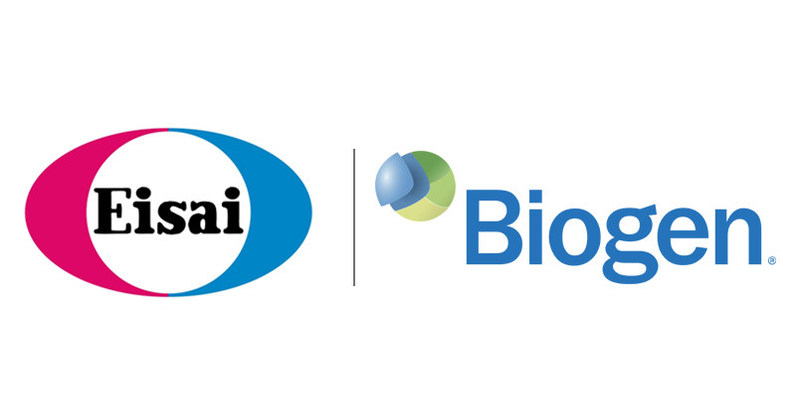Eisai's full lecanemab phase 3 trial results for Alzheimer's presented at CTAD

Following the news of two lecanemab-related deaths reported on the eve of the Clinical Trials on Alzheimer’s Disease (CTAD) 2022 conference, Eisai has now presented the full results from its phase 3 confirmatory Clarity AD study for early Alzheimer’s disease and published them in the New England Journal of Medicine (NEJM).
The full result from Eisai’s large, global phase 3 confirmatory Clarity AD clinical study of lecanemab – an investigational anti-amyloid beta (Aβ) protofibril antibody for the treatment of mild cognitive impairment (MCI) due to Alzheimer’s disease (AD) and mild AD (collectively known as early AD), with confirmed presence of amyloid pathology in the brain – were presented at CTAD in San Francisco, California and simultaneously published in the prestigious NEJM.
The Clarity AD phase 3 placebo-controlled, double-blind, parallel-group, randomised study had 1,795 participants with early AD at 235 sites in North America, Europe, and Asia. The lecanemab group consisted of 898, the placebo group of 897.
Randomised 1:1 to receive either the placebo of lecanemab 10mg/kg IV biweekly, stratification was according to clinical subgroup (MCI due to AD or mild AD), as well as presence or absence of concomitant approved AD symptomatic medication at baseline – such as acetylcholinesterase inhibitors, memantine, or both – as well as ApoE4 status and geographical region.
Clarity AD’s phase 3 primary endpoint was change from baseline at 18 months in the CDR-SB (Clinical Dementi Rating Sum of Boxes), the global cognitive and functional scale, and key secondary endpoints were change from baseline at 18 months in amyloid Positron Emission Tomography (PET) using centiloids, and AD Assessment Scale-Cognitive Subscale 14 (ADAS-Cog14), AD Composite Score (ADCOMS), and AD Cooperative Study-Activities of Daily Living (ADCS MCI-ADL).
Lecanemab treatment resulted in highly statistically significant results, reducing clinical decline on the global cognitive and functional scale, compared with placebo at 18 months by -0.45, representing a 27% slowing of decline.
Starting as early as six months, and increasing in absolute difference over time across all time points every 3 months, the treatment showed highly statistically significant changes in CDR-SB from baseline compared to placebo (All P-values less than 0.01).
All key secondary endpoints also showed highly statistically significant results compared with placebo and in the amyloid PET sub-study treatment with lecanemab showed statistically significant reduction in amyloid plaque burden at all timepoints starting at 3 months.
The mean change in centiloids at 18 months was -55.5 and 3.6 for lecanemab and placebo groups, respectively.
Lecanemab slowed decline of cognitive function by 26% on ADAS-Cog14 at 18 months, while in the ADCOMS assessment lecanemab slowed disease progression by 24% at 18 months. Lecanemab also slowed decline of activities of daily living by 37% on ADCS MCI-ADL at the same time point.
Adverse events in the lecanemab group were reported to have most commonly been infusion reactions, ARIA-H (i.e. combined cerebral micro-haemorrhages, cerebral macro-haemorrhages, and superficial siderosis), ARIA-E (oedema/effusion), headache, and fall.
The findings reported that deaths occurred in 0.7% and 0.8% of participants in the lecanemab and placebo groups, respectively, and that no deaths were related to lecanemab or occurred with amyloid-related imaging abnormalities (ARIA) in the 18-month study period. Overall, lecanemab’s ARIA incidence profile was within expectations based on the phase 2b results.
Both Eisai and Biogen co-commercialise and co-promote lecanemab, while Eisai has final decision-making authority.
The patient organisation, The Alzheimer’s Association, commented upon news of the results in September that “for people in the earliest stages of Alzheimer’s, this treatment has the potential to change the course of the disease in a clinically meaningful way. These results indicate lecanemab may give people more time at or near their full abilities to participate in daily life, remain independent, and make future health care decisions.”
Last month, Roche’s Genentech division reported disappointing top-line results from its highly-anticipated phase 3 trial of gantenerumab in early Alzheimer’s disease, in yet another setback for an amyloid-targeting drug.













